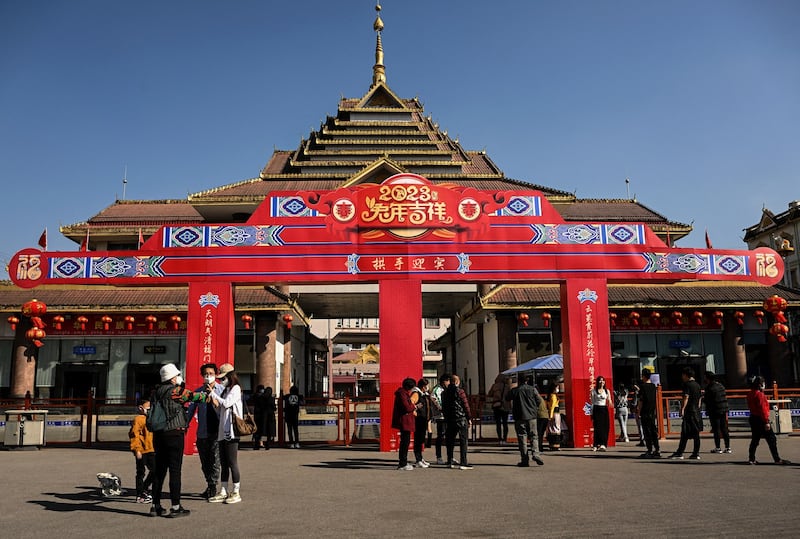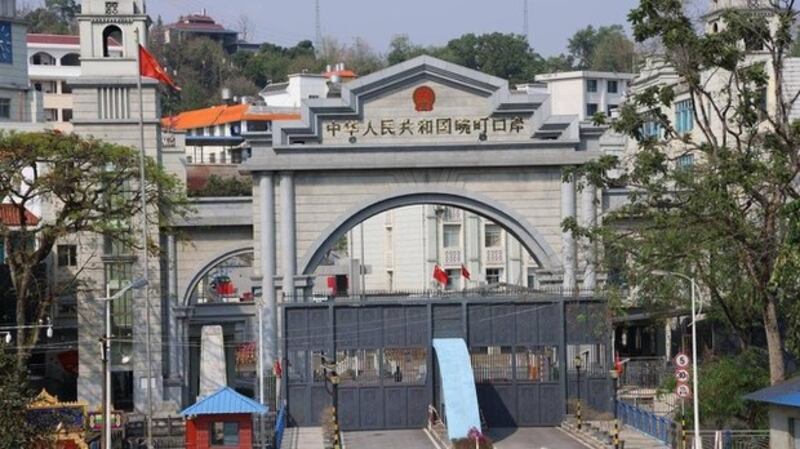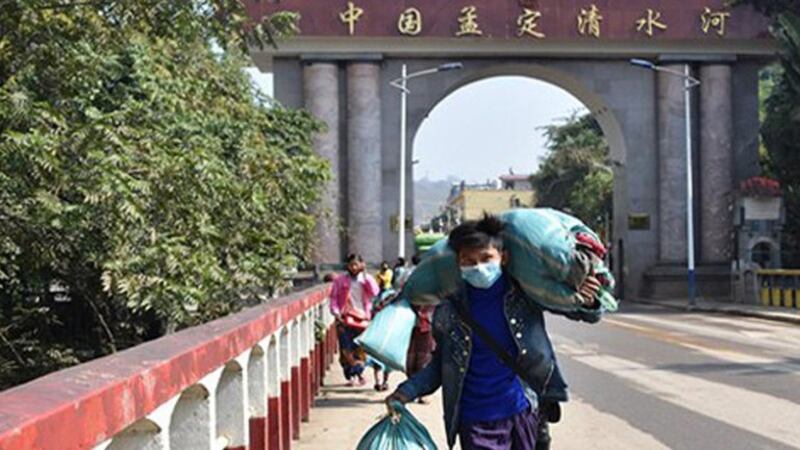Ethnic rebels in eastern Myanmar’s Shan state have reopened checkpoints on the border with China that were shuttered at the start of an offensive six months ago, but official trade has yet to resume as Beijing is awaiting approval from the military regime, rebel officials and residents said Friday.
The resumption of trade was among the points discussed in a China-brokered ceasefire agreement between the Three Brotherhood Alliance of ethnic armies and Myanmar's junta in January, after the former made significant gains in an offensive launched on Oct. 27, and codenamed Operation 1027. No formal agreement was made on reopening the trading routes and it is unclear whether the delay could impact the truce.
On Friday, the Ta’ang National Liberation Army, or TNLA, which is one of the members of the Three Brotherhood Alliance along with the Myanmar National Democratic Alliance Army and Arakan Army, said its officials were informed by Beijing that it “hasn’t got an agreement to resume border trade.”
“The Muse and Nam Hkam [townships] border gates have not yet been reopened [on the China side],” said TNLA spokeswoman Lway Yay Oo. “China is expected to resume bilateral trade after they receive approval from the Myanmar junta.”

The TNLA, which controls Nam Hkam township, reopened the Nawng Tang border gate in late April. But while local trade has resumed, China has not allowed any official border crossings, she said.
The Myanmar National Democratic Alliance Army, or MNDAA, said it reopened border gates earlier this month in the townships of Chinshwehaw, Laukkai, Mone Koe and Pang Hseng – all of which are under their control.
But a resident of Pang Hseng said China continues to block official border crossings at Kyin San Kyawt in Muse, Chinshwehaw and some gates in the Mone Koe area.
“Chinese authorities said that they will issue border crossing documents to enter Ruili, Mansi, Pang Hseng and Wan Tein townships, however, it is uncertain how to implement it,” said the resident who, like others interviewed for this report, spoke on condition of anonymity due to security concerns. “Commodity flows are not yet allowed at the Pang Hseng gate, while there is limited import/export at the Mone Koe gate.”

The resident said local traders are using the Kyin San Kyawt gate for small-scale commerce.
Local trade hampered
A resident of Nam Kham township named Pi Sai told RFA that restrictions have made local trade at the border significantly more difficult than prior to Operation 1027.
“Cargo trucks are allowed to pass these borders, but no passengers are allowed and the driver of the vehicles is changed at both sides,” he said. “Charcoal, metals and other items are exported to China, while food items are the main imports from China.”
During their Operation 1027 offensive, the Three Brotherhood Alliance captured 16 towns in northern Shan State. However, China's intervention on Jan. 11 brought the alliance's offensive progress to a halt.
Two days of talks in the southern Chinese city of Kunming earlier this month also focused on Chinese border trade issues, but no concrete agreements were reached, according to sources close to the rebel groups.
Attempts by RFA to contact junta spokesperson Major General Zaw Min Tun and officials with the junta’s economy and commerce department for details about the suspension of official trade at the border gates went unanswered Friday. An email requesting comment from the Chinese embassy in Yangon received no response by the time of publishing.

A political commentator and former Myanmar military official, who declined to be named due to fear of reprisal, said official border trade cannot resume until the junta and the rebel groups make agreements on territorial designation and tax distribution.
"China wants to open up the border gates, so it’s taking a leading role in the ceasefire,” he said. “Countries prefer government-to-government relations … otherwise, it would mean recognizing the rebel groups, so they can’t trade officially.”
According to data published by the Ministry of Economy and Commerce under the junta, in the fiscal year 2023-2024, the average monthly value of bilateral trade through Muse and Chinshwehaw was just over US$100 million.
Analysts say suspension of border trade at the two gates has hampered manufacturing in China’s Yunnan province, prompting Beijing to push for reopening the border in talks between rebels and the junta.
Translated by Aung Naing. Edited by Joshua Lipes and Matt Reed.
